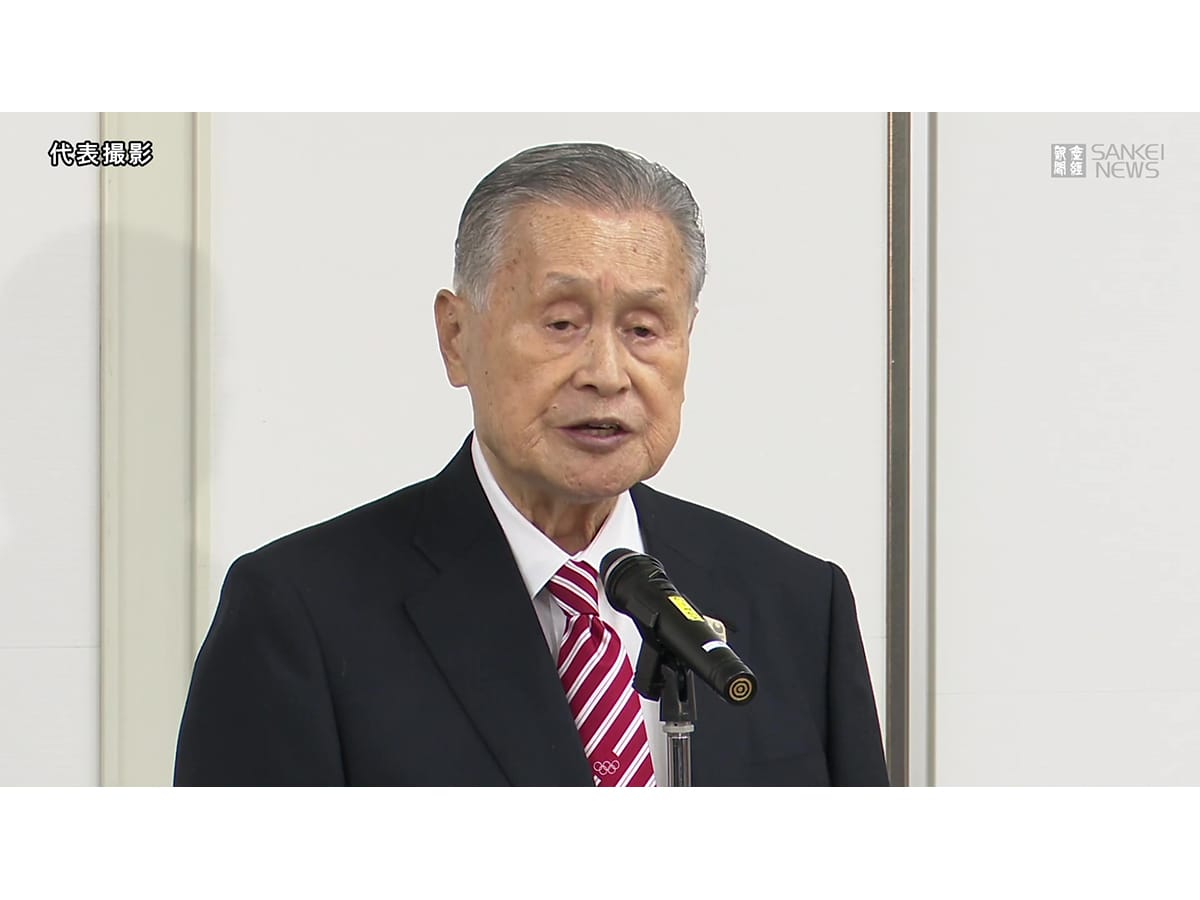
Source: Yoshiro Mori at a Feb. 4 press conference | © YouTube: "【ノーカット】森喜朗氏、会長続投の意向 「女性が…」発言で釈明会見(代表撮影)" / © Sankei News
Head of the 2020 Tokyo Olympics, Yoshiro Mori, Makes Misogynist Remark
- Tags:
- gender equality / IOC / misogyny / Sexism / Tokyo Olympics / Yoshiro Mori
Related Article
-

Tokyo 2020 Olympics Welcomes Akira Comparisons With Projection Mapping Event
-

Akira predicts the 2020 Olympics and its cancellation
-

Tokyo 2020 Olympics Holding Mascot Design Contest, Offering ¥1 Million Prize
-

Japan receives its lowest gender equality ranking on record
-

Japanese women face discrimination, victim blaming, harassment as they seek equal rights
-

Feeling The Heat: Japan Uses The 2020 Olympics to Further Climate Awareness


The 83-year old president of the Tokyo Organizing Committee of the Olympic and Paralympic Games, and former Japanese Prime Minister, Yoshiro Mori, made an unfortunate misogynist remark during a Committee meeting on Wednesday, February 3rd, 2021.
According to a report written the following day by the Nippon News Network, the remark followed a statement by the Japan Olympic Committee that said it would aim to fill its committee with more than 40% women. Mori responded by saying, "A committee board with many women will take time. Women have a strong sense of competition, so when one raises her hand, they all think they have to and then everyone speaks."
The report goes on to say that this remark garnered the “disdain” of many women, and in a conversation with Nihon TV, he added that “I would like to explain what I said later this afternoon.”
Watching that afternoon conference (see below), it is difficult to feel sympathetic for him given not only his words but also his physical demeanor as he explained himself. His demeanor could have been viewed as defensive and avoidant, even asking a female reporter to remove her mask to ask a question. Perhaps his words are understandable, given his age, but it seemed to me like he had grown accustomed to using his age as a crutch to get his way or to prove a point.
In response to the question asking if he considered stepping down since his words have received considerable backlash and uproar, he responded, “I’ve been doing this job for a long time, I have no intention of resigning.” Although that may be true, his senior status does not exempt him from accountability for making such archaic remarks in today’s modern world.
At some point during the conference, Mori is asked by a male reporter why he thinks that only the women on the committee tend to speak longer. It’s not something that’s solely a characteristic of women as a whole, but as Yuriko Koike, the Governor of Tokyo, said: "how long conversations take differs from person to person" and cannot be attributed to the whole.
Unfortunately, this sort of mentality is prolific in patriarchal Japan. Change can come slowly here, and working women are often scoffed at if they dare dream of achieving anything greater for themselves. One of the major issues is with giving homage to Japanese elders unconditionally, and the blatant brushing aside of any wrong-doing they might get themselves involved in. It happens time and time again, and yet the issue is often avoided.
Does anyone remember the Higashi-Ikebukuro runaway car accident that killed a young mother and child? I specifically remember this date because I was actually in the area for concert practice, although we were far enough away that I didn't notice anything at the time.
Kozo Iizuka (89), a former senior bureaucrat at the industry ministry, was accused of running a red light and causing an accident that injured nine and killed two, Mana Matsunaga (31) and daughter Riko (3), and widowing Takuya Matsunaga. Iizuka stated that he mistook the accelerator for the brake and ended up going about 96kph when he hit the two crossing the road.
Of course, generally speaking, a common issue could be elderly individuals in positions they may no longer be capable of manning, whether it be due to physical or mental decline. It shouldn’t be a taboo matter; it’s purely a natural part of life, but given Japan’s reverence for our elders, oftentimes excuses are made to avoid making difficult decisions.
Again, the issue currently with Mori is very different from the Higashi-Ikebukuro accident, but they have a common denominator that cannot be ignored. Perhaps these egregious gaffes at best and tragedies at worst could be avoided by reexamining or testing the physical and mental capacity of individuals above a certain age. Appointing someone to a position on seniority alone, even if they are well into their 80s or 90s, might not be the best choice and it’s a valid debate to have if anyone has the courage to address it.
Unfortunately, these issues are often met with avoidance and dismissal, just like the IOC seems to have done in the case with Mori. For example, according to NHK News, the IOC said: “President Mori has apologized for his comments today. With this, the IOC considers the issue closed.”
As seen in a clip by the FNN, Yukio Edano, leader of the Constitutional Democratic Party (CDP) commented, “It’s being broadcast and told around the world. This is true shame upon the Japanese people. The Prime Minister may be the only one who can bell this cat!” This term to “bell a cat” is an idiom that means to “do a dangerous job.”
Some people don't seem to understand that apologizing doesn’t suddenly right a wrong. Yes, apologizing is good, but it holds no weight if it’s not backed by vigorous action or change. Saying sorry won’t bring back innocent victims of car accidents involving elderly drivers, for example, unless it’s followed with meaningful action and change.
Now, the backlash to Mori’s misogynist remarks continues to spread. According to the Mainichi, in response to Yoshiro Mori's disdain for women, some people who applied to be volunteers for the venue said that they would withdraw their applications.
The incident regarding Mori and the Tokyo Olympics is an on-going matter, so it’s unclear how this will play out at this point. Given the way Japan has treated its elderly, it is questionable anything will come from this.